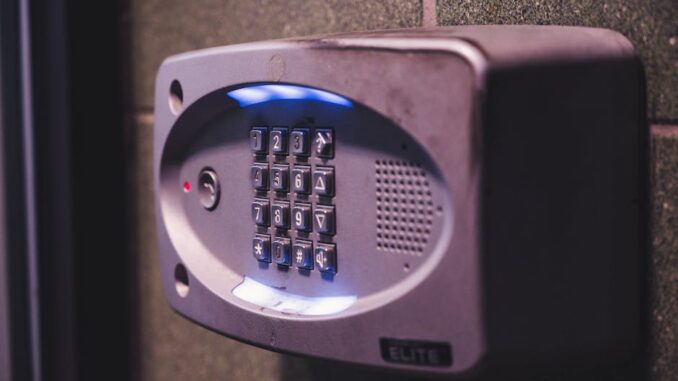
Summary
This article provides actionable steps for hospitals to enhance data security and protect patient confidentiality. It covers key areas like access control, data encryption, staff training, and incident response planning. By following this guide, hospitals can strengthen their security posture and maintain patient trust.
Safeguard patient information with TrueNASs self-healing data technology.
Main Story
Okay, let’s talk about patient data security in hospitals. It’s not just a box-ticking exercise for HIPAA compliance, it’s fundamentally about ethics and, frankly, keeping people’s trust. We’ve all got a role to play in this, right? So, how do we actually make things more secure?
First Up: Access Control
Think about it: does everyone really need access to everything? Probably not. Let’s implement some seriously robust access controls. The ‘principle of least privilege’ is your friend here. Give people access to only what they absolutely, positively need to do their jobs. No more, no less. Role-based access control (RBAC) makes this manageable, and it’ll save you time in the long run. And for Pete’s sake, enforce strong, unique passwords – maybe even a password manager, and multi-factor authentication (MFA) for everyone. Seriously, I can’t stress MFA enough. It’s a game-changer.
Don’t just set it and forget it though. Regularly audit those access logs! Keep an eye out for any unusual activity. Think of it like security cameras for your data – you’ve gotta actually watch the footage.
Encryption is Non-Negotiable
Encrypt. Everything. Data ‘at rest’ (when it’s just sitting there) and data ‘in transit’ (when it’s moving around). Use strong encryption algorithms; it is the only way to protect that data from prying eyes, even if, heaven forbid, you suffer a breach. Key management’s crucial too, obviously. Only authorized personnel should have access to those keys. Think Fort Knox, but for digital keys.
Education is Key (and Often Overlooked)
Seriously, how often do your team get security training? Because it needs to be regular. Everyone, from the CEO to the cleaning staff, needs to understand the basics: how to handle patient data safely, how to spot a phishing scam (they’re getting so sophisticated!), the importance of strong passwords, and the absolute non-negotiability of data privacy. Security training should be provided regularly, so that everyone is constantly reminded of their responsibilities.
Consider this: simulate data breach scenarios. It might sound a bit extreme, but think of it as a fire drill for your data. It prepares your staff for the worst and reinforces those all-important security protocols. Basically, promote a ‘security-first’ culture. Make it part of your hospital’s DNA.
Planning for the Worst: Incident Response
Okay, let’s be realistic; breaches happen. It’s not a question of if, but when. That said, it’s crucial to develop, and routinely update a comprehensive incident response plan.
This plan needs to cover everything: how to contain a breach, how to investigate, how to notify affected parties (legally and ethically, this is huge), and how to restore systems. Test that plan, update it regularly, and make sure everyone knows their role.
Mobile Device Security
Mobile devices are a huge weak spot. It’s easy to think ‘that won’t happen to me’ but it does! Enforce strong passwords or biometric authentication. Encrypt the data. Implement remote wiping capabilities. And for goodness sake, keep those operating systems and software updated! Patch those vulnerabilities.
Vetting Third-Party Vendors
Who else has their hands on your patient data? Your third-party vendors? Better vet them thoroughly. Ensure they’re HIPAA-compliant (at a minimum). Include security requirements in your contracts, and monitor their compliance regularly. Don’t just assume they’re doing the right thing; verify it. Trust, but verify, as they say.
Continuous Improvement: It Never Ends
Okay, so here’s the thing. Patient data security isn’t a one-time fix; it’s a continuous process. Regularly conduct security risk assessments, implement continuous security monitoring, and stay on top of the latest threats and best practices. The landscape is constantly changing, and you need to adapt.
Really, it’s about vigilance. Remember, this isn’t just about avoiding fines or bad press, it’s about protecting people’s private information. You wouldn’t want your medical history plastered all over the internet, would you? So, let’s treat our patients’ data with the respect it deserves. By doing so, we not only uphold our ethical obligations but also strengthen the foundation of trust that is essential for delivering quality healthcare. It isn’t easy, but its necessary.


So, about those simulated data breach drills… Can we rig them with glitter bombs and embarrassing ringtones for extra realism? Just imagine the learning curve! I bet that will reduce the incident breaches.
That’s a hilarious and memorable idea! Adding some unexpected elements like glitter bombs to simulated data breaches could definitely make the training more engaging and help staff remember the protocols under pressure. What other creative ideas could help make data security training more impactful and less of a chore?
Editor: MedTechNews.Uk
Thank you to our Sponsor Esdebe
The point about continuous improvement is critical. How often should hospitals conduct security risk assessments, and what frameworks or standards do you find most effective for guiding those assessments?
Thanks for highlighting the importance of continuous improvement! Regarding risk assessment frequency, I’d suggest at least annually, but ideally more often if significant system changes occur. NIST and ISO 27001 are great frameworks to guide those assessments. What are your thoughts on HITRUST CSF as another option?
Editor: MedTechNews.Uk
Thank you to our Sponsor Esdebe
“Encrypt everything,” you say? Even the coffee machine’s settings? I’m picturing healthcare staff needing a decryption key just to make a latte. Though, come to think of it, maybe that *would* improve data security by keeping everyone awake during those training sessions!